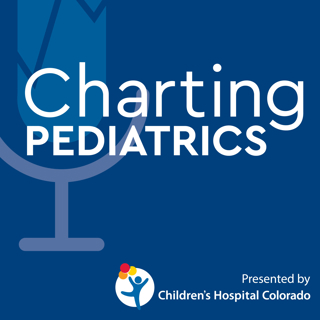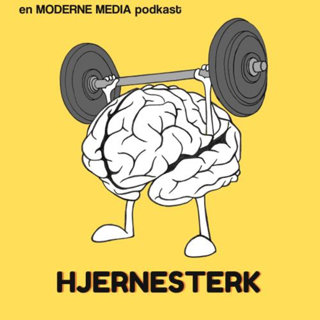
Maintenance of Certification and Quality Improvement for the Pediatric Primary Care Office (S2:E2)
Dan Hyman, MD, and Heather Howman join us today to discuss the four parts of the American Board of Pediatrics' Maintenance of Certification (MOC) program. Dr. Hyman is the Patient Safety Officer at Children's Colorado and Heather Howman is the MOC Program Manager at CU Medicine. Listen in as they share their expertise on the MOC and quality improvement projects for the pediatric primary care office. In this episode: What is MOC? Four parts of the Maintenance of Certification (MOC) for board-certified pediatricians and pediatric subspecialists Achieving the credits that you need to maintain your certification Choosing a quality improvement project for your office Turning quality improvement into a team effort The length of time to complete quality improvement projects Barriers in a private office setting for these kinds of projects Leveraging your EMR in your practice Resources and tools to use in part four of ABP's MOC program Consensus building strategies to use within your pediatric practice The American Board of Pediatrics
14 Aug 201822min

Discussing Firearm Safety in the PCP Office (S2:E1)
Welcome to season two of Charting Pediatrics. In this episode we address the timely and serious topic of firearm safety with Eric Sigel, MD. Dr. Sigel is the Fellowship Director of Adolescent Medicine at Children's Colorado and professor of pediatrics at CU Medicine. In this episode: The AAP gun safety guidelines Principles that implicate firearms in suicide deaths The risks of having firearms in the home What age to start addressing firearm safety with your patients and families Approaches for addressing gun safety with parents and patients Informing people of the importance of safe storage for firearms Ways to become involved in the advocacy efforts around gun safety American Academy of Pediatrics Gun Violence Policy Recommendations American Academy of Pediatrics Gun Violence Prevention AAP News & Journals: Firearm Related Injuries Affecting the Pediatric Population
7 Aug 201829min

School Anxiety and School Refusal in Kids (S1:E25 Rebroadcast)
Our guest for this episode is Jessica Malmberg, PhD, the Clinical Director of Outpatient Services at the Pediatric Mental Health Institute and assistant professor of child psychiatry at CU School of Medicine. Dr. Malmberg talks us through a common behavioral issues of school-aged children – school refusal – and provides insights, advice and tools to help prevent, manage and understand this behavior. In this episode: Outlining and identifying the underlying symptoms and signs associated with a child refusing to attend school How primary care providers (PCPs) can assist parents who are experiencing guilt Identifying the four most common reasons that children refuse to go to school Exploring the effects of social media on children's behavior when it comes to school refusal How a PCP should approach treatment of school refusal The recommended frequency of follow-up care for kids who are refusing to go to school The importance of connecting parents to community-based resources Preventative practices parents can set up in the home to prevent this behavioral issue What an excellent prognosis looks like for children experiencing school refusal When it's time to refer to a mental health professional PCPs in the Denver Metro Area can refer patients to the Children's Hospital Colorado Outpatient Psychiatry Clinic or to a local community mental health center Resources for dealing with school refusal: School Refusal: Information for Educators (.pdf) from the National Association for School Psychologists School Refusal in Children and Adolescents from American Family Physician The Functional Assessment of School Refusal Behavior Effective Child Therapy Division 53 of the Society of Clinical Child & Adolescent Psychology website School Refusal from the American Academy of Child & Adolescent Psychiatry
31 Jul 201828min

Top 10 Pediatric Rheumatology Diagnoses (S1:E19 Rebroadcast)
Today Robert Fuhlbrigge, MD joins us to discuss the 10 most common pediatric rheumatology diagnoses. Dr. Fuhlbrigge is the Chair of Rheumatology at Children's Colorado and professor of pediatrics and rheumatology at the University of Colorado School of Medicine. In this episode: What swollen joints can indicate when assessing potential diagnoses in the realm of rheumatology The most common identifier in determining a systemic problem The role of morning stiffness in the differential diagnosis The difference between mechanical pain and inflammatory disorders Defining how helpful an elevated ANA is in treating a patient with Lupus Outlining the best tests for inflammation: CSR, CSR and ANA Why rheumatologists find unexpected fevers in children interesting Unexplained weakness and what it means Which rashes may indicate that it's necessary to refer to rheumatology The role fatigue plays in the rheumatology world Usefulness of radiology studies, MRI, CT and other imaging modalities Helpful apps clinicians use for rheumatological diseases today The role of genetics and development in rheumatological diseases
24 Jul 201833min

Neonatal Jaundice and Bilirubin Levels in Newborns (S1:E21 Rebroadcast)
Today on the podcast, Dave Scudamore, MD, joins us to talk about neonatal jaundice. Dr. Scudamore is the Director of Inpatient Medicine for the Network of Care at Children's Colorado, and he is also an assistant professor of pediatrics in hospital medicine at the University of Colorado School of Medicine. In this episode: The major risk factors for severe jaundice that can cause complications with neonates How to assess mom and baby for the risk factors of neonatal jaundice by reviewing patient history and birth data Difference between the risk factors for elevated bilirubin and the risk factors for neurotoxicity The significance of the ratio between albumin and bilirubin Standard protocols for bilirubin workups and monitoring for risk factors How you can provide elevated patient care by using a patient-centered care approach and considering the context of the case The way to utilize the Bhutani curve to assess risk and the AAP guidelines to initiate phototherapy Understanding the importance of follow ups and their role in intervention
17 Jul 201824min

Food Allergies Diagnosis and Hot Topics (S1:E16 Rebroadcast)
With us today is Matthew Greenhawt, MD, associate professor of pediatrics and allergy at the University of Colorado School of Medicine. Dr. Greenhawt discusses hot topics surrounding food-related allergies, including the early introduction of peanuts. In this episode: What initial steps to take before referring patients to an allergist The importance of getting a complete patient history to diagnose food allergies Tools primary care providers can utilize in the diagnostic process Why the presence of IGE may not be an effective marker for a food allergy Understanding the cross-reactivity between different allergies How to implement a food allergy action plan Methods and recommendations for early introduction of the peanut Where providers can find resources for on-going food allergy education Recommendations on prescribing epinephrine Links from today's episode Food allergies Research on how to avoid food allergies UpToDate
10 Jul 201828min

Constipation Treatment and Management (S1:E4 Rebroadcast)
The host of this podcast is Dr. David Brumbaugh, pediatric gastroenterologist and Associate Chief Medical Officer at Children's Colorado. In this episode, Joel Friedlander, MD, pediatric gastroenterologist at Children's Colorado, addresses the management of constipation and the effects of leaving it untreated, especially in young children. In this episode, Dr. Friedlander discusses: Addressing constipation and uncomfortable stools early Potential long-term complications associated with constipation Two key components to focus on in the physical examination Miralax, a common used laxative for the treatment of constipation The use of lactulose for young children Categorizing medications for constipation Different medications with different adverse effects Steps to behavioral modification Constipation split between organic and functional Why medication to treat constipation won't work without a change in behavior
3 Jul 201823min

Heart Arrhythmia in Pediatric Primary Care (S1:E5 Rebroadcast)
In this episode, Johannes von Alvensleben, MD, pediatric cardiologist and electrophysiologist at Children's Hospital Colorado and assistant professor of pediatrics at the University of Colorado School of Medicine, talks about heart arrhythmias. He discusses some of the most common heart arrhythmias in the primary care setting, including identifiable characteristics and treatments. In this episode: Palpitations and syncope (commonly known as fainting) as symptoms for heart arrhythmia Characteristics of common heart arrhythmias Supraventricular tachycardia (SVT) in an infant versus a young child Differences in children with syncope Inherited heart arrhythmia syndromes Importance of obtaining an electrocardiogram (ECG) Co-morbidities in children that can impact diagnosis with arrhythmias Drug-related arrhythmias in older children Treatment options for heart arrhythmias in young children The success rate of ablation for arrhythmia
26 Jun 201823min




















